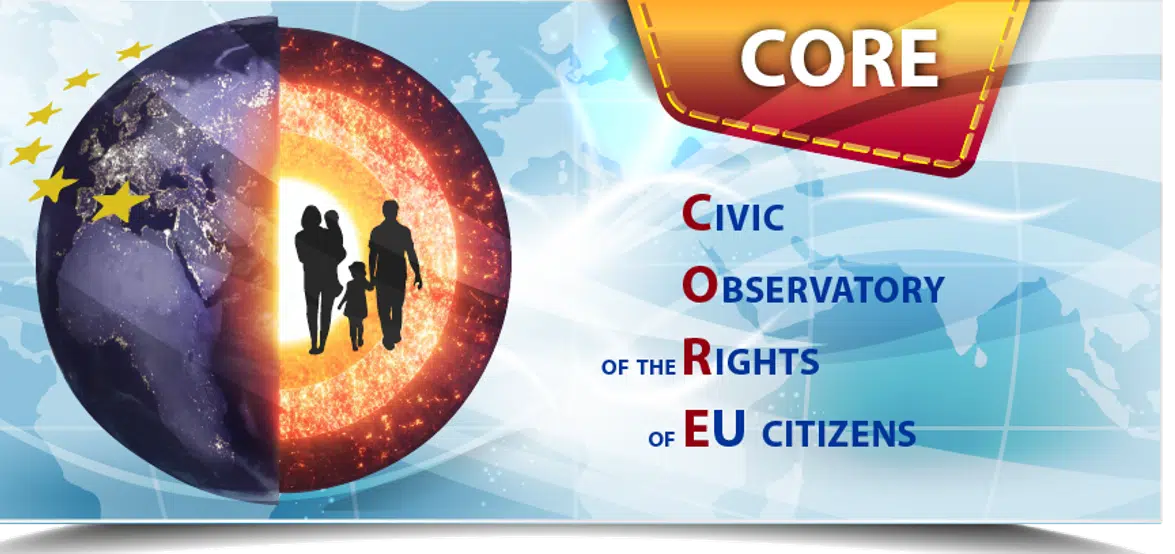Civic Observatory on the Rights of EU Citizens (CORE)
Civic Observatory on the Rights of EU Citizens (CORE) aims to monitor and take stock of legal and political developments in the field of EU citizenship, including the right to free movement, political inclusion, access to health care and tackling homelessness among mobile EU citizens. This will allow the organisations involved in the Observatory to run and implement joint cross-sectoral initiatives and advocacy actions in order to complement and increase the impact of their individual activities.

The Observatory will publish its annual policy report, outlining the most important developments, and present it during the annual conferences and other relevant events of the three partner organisations.
The specific objective of CORE is to optimise the impact of the individual work of CORE’s members by creating synergies in terms of expertise to increase capacity and upscaling the promotion of EU mobile citizens’ rights.
The Civic Observatory on the Rights of EU Citizens (CORE) is a joint venture of the European Citizens Action Service (ECAS) and:
2019-2020
ECAS will: